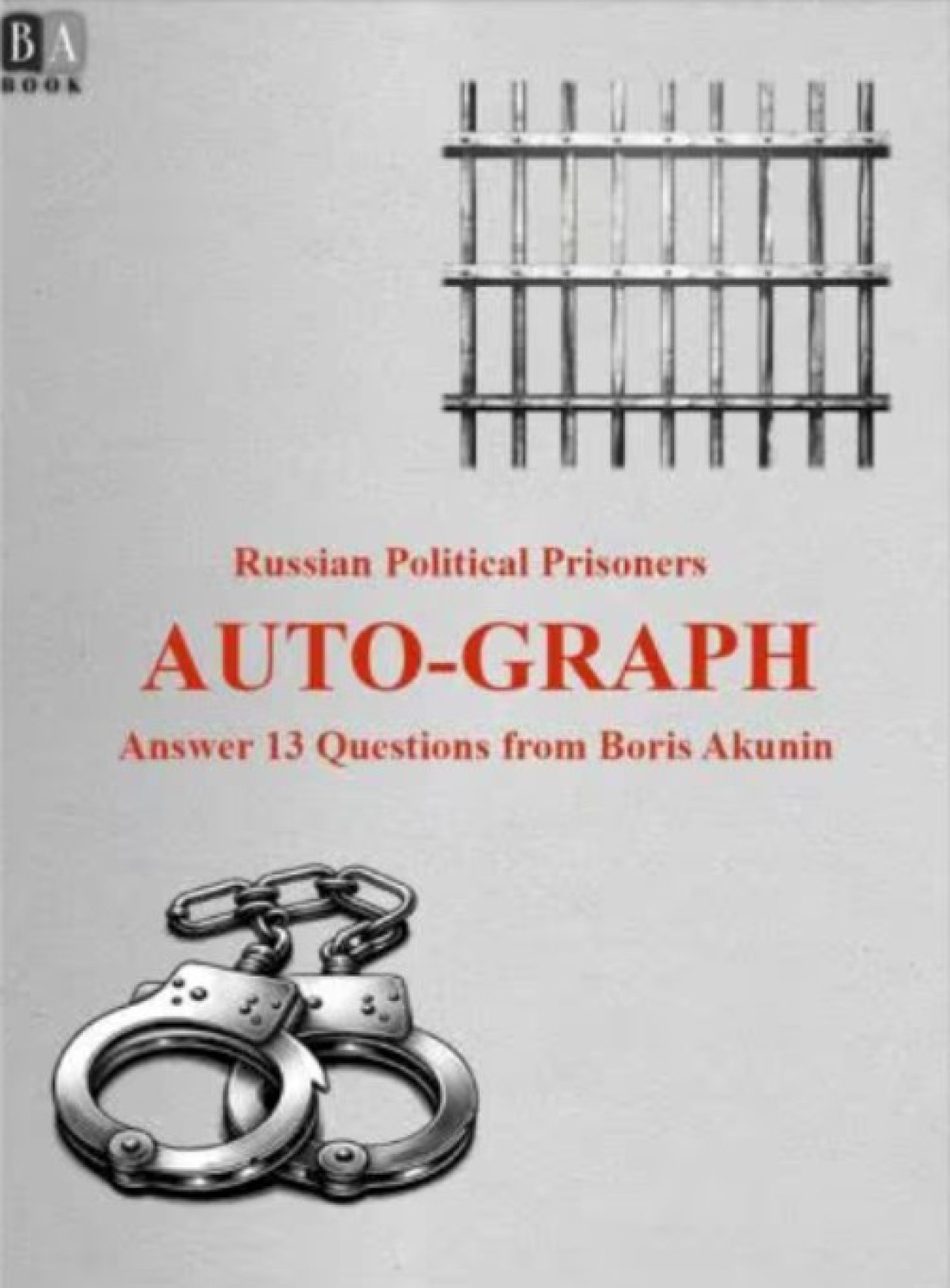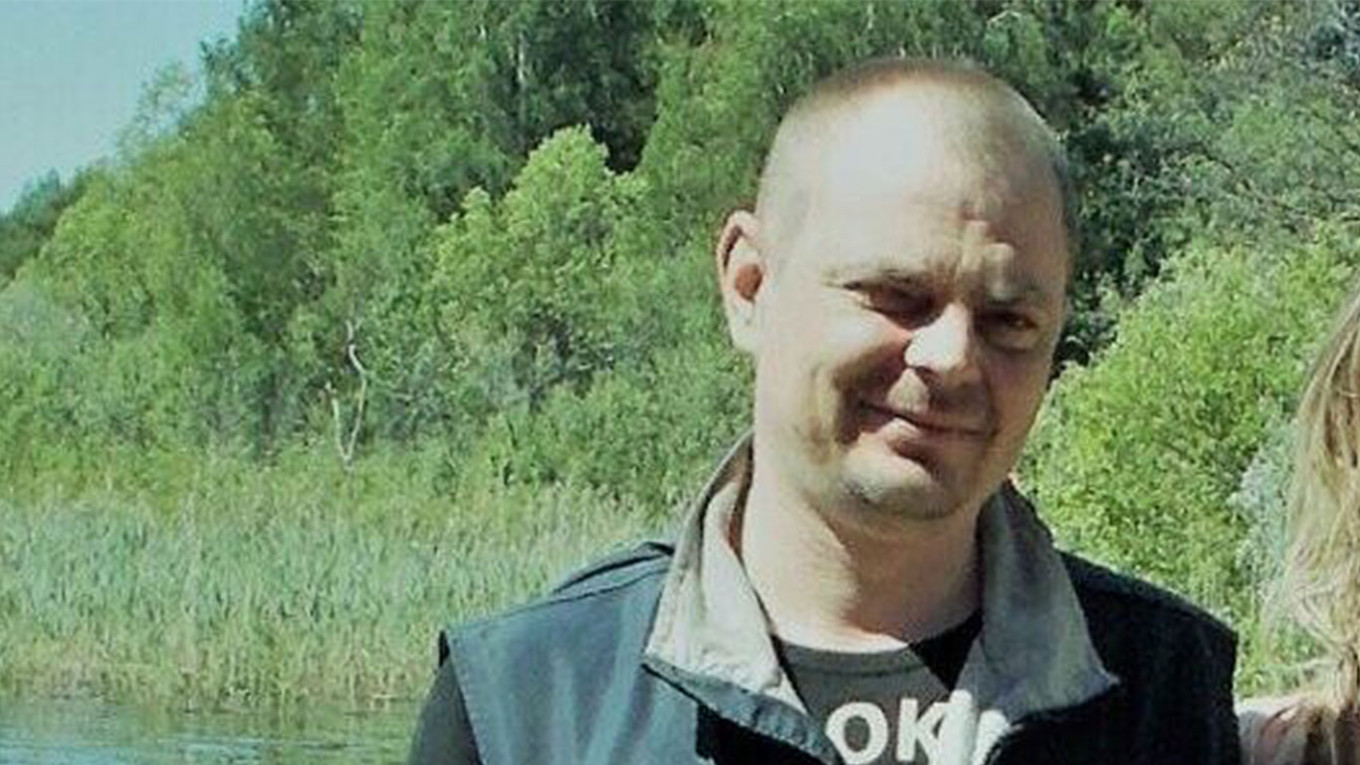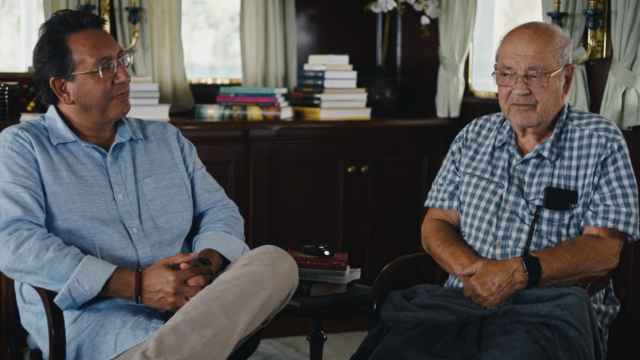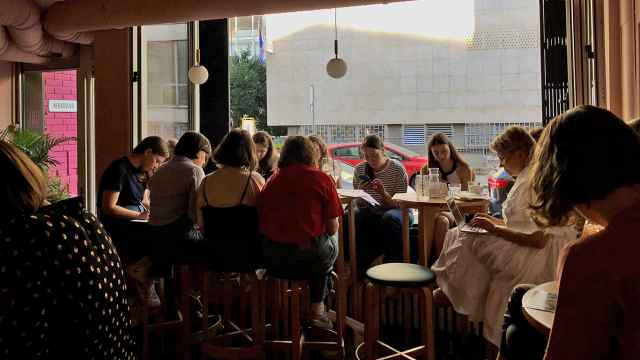FROM THE COMPILER*
There are many political prisoners in Russia, and their number is only increasing. It’s axiomatic: the less freedom there is in a country, the more people are imprisoned for their beliefs. Before February 24, 2022, the authorities usually sentenced political prisoners on far-fetched criminal charges. Now political repression has become blatant. People are jailed for speaking out, for writing on social networks, for any form of civil protest. The security services have become very active, and in order to demonstrate vigilance and distinguish themselves before their superiors, they often grab random people and fabricate a “case.”
This is all some kind of perennial Russian déjà-vu, a recurring bad dream.
The only thing that can counteract the onslaught of the “arrestocracy” in a police state is solidarity with those who are behind bars.
There are a few political prisoners who are remembered, whose names are on everyone’s lips. But there are a hundred times more who are little known or not known at all to the public. For these people it is especially hard. They feel isolated, abandoned, forgotten.
We can’t let that happen.
Russia would not be Russia if there weren’t people who, despite all the risks, help political prisoners: they send food, clothes, books, and, most importantly, support them morally and correspond with them.
A group of such volunteers asked me to write a letter to be sent to prisons and pre-trial detention centers. Their idea made sense: a letter from a famous person is proof that people care about your fate, that the world has not forgotten you. I wasn’t the only one who was approached and who agreed to take part in this campaign. But I came up with a counter proposal.
At the time, I was conducting an AUTO-GRAPH survey of creative people. Thirteen simple yet difficult questions that reveal personality. I planned to publish an e book of 13 chapters and all proceeds would go to a children’s hospice (Dom s mayakom) in Moscow. The book appeared and, I think, turned out to be very interesting. Some seemingly well-known people revealed themselves in an unexpected light.
Then it occurred to me that the same questions should be put to political prisoners, so that readers would see not some abstract “prisoners of conscience,” but real people. Readers would learn what they think and feel. And want to support them.
Here’s the letter I wrote so that volunteers could forward it to their correspondents:
Hello,
This is Grigory Chkhartishvili (Boris Akunin). I, like so many others, admire your fearlessness and am very worried about you. It seems to me that the most important thing today is to change the attitude of Russian society towards political prisoners. To explain to those who are not interested in politics why these people behave the way they do, regardless of all the risks and consequences.
I am conducting a survey called AUTO-GRAPH whose most important questions are not political, but attitudinal. Writers, famous journalists, and public intellectuals have been invited to participate.
But I would like my audience, hundreds of thousands of ordinary people, to learn how these questions would be answered by political prisoners. This would explain your motives better than any political declaration.
Selected responses will be published on my BAbook website and its social media channels.
Please know that few people today have the courage to stand up for their beliefs at the cost of their own freedom, but there are many who have deep respect for you and would like to express their support. Let these people get to know you (and you personally) better.
In the hope that the darkness will dissipate and you will again be free.
G.Sh. Chkhartishvili
Many prisoners did not receive this letter: the prison censors did not let it through. The same was true of many of the responses: they were not allowed out. Even so, there were a lot of replies. So many that I compiled a book of them.
You all know Alexei Navalny, Ilya Yashin, Vladimir Kara-Murza, Ivan Safronov, Boris Kagarlitsky, Alexander Shestun, Mikhail Kriger, Svetlana Petriychuk, Zhenya Berkovich, and perhaps a few other respondents. But among the “unfamous” prisoners are some absolutely remarkable people whose names I did not know, and now I do. You will surely notice them too.
And all of the respondents, all without exception, make one want to support and help them.
It’s a powerful read. The amazing thing is that it’s not at all depressing.
The respondents are all very different, of course. But they have two things in common.
First, their courage is significantly above average. Here we have homo interritus, a person who is not afraid. Secondly, instead of looking under their feet, they mostly look around and up. They are interested in big sub jects and big ideas.
The goal of an “arrestocratic” regime is to isolate the brave and the far-sighted so that everyone else will be afraid and not look too hard at the reality.
This book consists of two parts. Part One has 13 chapters, one for each question. Each chapter contains only a small selection of the responses received, enough to give readers a general idea. Part Two will allow readers to become better acquainted with individual respondents. Here you will find brief biographies followed by his or her answers to all 13 questions. In other words, Part One deals with the theme, Part Two with the personality.
This book can be bought at any price—low, high, or very high, depending on your means. Every penny raised will go to help Russian political prisoners. […]
It would be wonderful if, after reading this book, you could write a personal letter to one of the respondents. For their address, please write to krylov.e.box@gmail.com.
* Grigory Chkhartishvili (Boris Akunin)

Vitaly Torochkov
Vitaly Viktorovich Torochkov (b. 1984) lived in the city of Cherepovets in the Vologda Region. Father of five children with his common-law wife: four of the five were taken away by social services in 2020, the fifth in 2021. After Russia invaded Ukraine, the couple published pro-Ukrainian, anti-war, and anti-Putin posts; also Ukrainian songs and links to Navalny. On September 28, 2022, Torochkov and his wife, Polina Roots, were detained on charges of “inciting terrorist activity” (Article 205.2 of the Russian Criminal Code). The case against them was based on a video Torochkov posted on February 22, 2022, on VKontakte and on a Telegram channel he administered. The video was entitled: “A Russian Passport is a Disgrace and a Stigma!” It contained a clip of a young man burning his Russian passport and saying, among other things, “Death to Putin.” (The video was taken down four days later.) Polina Roots has been sentenced to nine years in prison. Her husband, Vitaly Torochkov, has been sentenced to 13 years in a strict-regime penal colony.
Hello, Grigory! With great respect for you and for those who are with you in spirit, Vitaly!
I would like to thank you first off for your letter, your support and your efforts, as well as for your compassion and principles.
I want to try to answer your questions, but to be honest, I don’t completely understand them and I won’t be able to answer them fully because of being in prison. Such answers may contain a lot of information that is of interest not only to you and ordinary people. But still I will try to write something in the way of answers.
1. HOW WOULD YOU DEFINE YOURSELF? WHO ARE YOU?
I have never defined myself in anything and I have always disliked being forced to define myself in something, as everything in nature changes, so a person changes in his life, and one can define oneself only for a while, and, in my opinion, there can be no concreteness here. Man is learning and changing all his life, just like everything around him. I am just a simple person who has his own opinion about everything, who wants to be free, in harmony with nature and the surrounding world, who lives for peace, goodness and the development of everything good for mankind and all living things on Earth. I haven’t found anything special or amazing in myself. I haven’t noticed any great talents in anything. I don’t aspire to fame. I don’t aspire to politics either. But since 2013, I’ve been forced to take an interest in politics and I may have to become involved in something of the sort, out of necessity. I’ve always been drawn to business, to a family (a large one). The life of a farmer attracted me. But while pursuing and building all of this, I collided with Russia’s criminal system, which I’ve had to fight against since 2013 until today, as I realized that there was no other way. It is impossible to support parasite-criminals since you end up destroying yourself with your own hands, and especially as my problem had to do with the fate of my children, who were kidnapped for the purpose of their realization. Later, children in Ukraine were also kidnapped, according to the same scheme. That’s why my wife and I were packed off to prison, primarily because of the children, and my fighting against the criminal system of the Russian Federation. We are living witnesses of these crimes against children, of this covert, criminal business in Russia and elsewhere. We have knocked on every door we could find in the world. In Russia these are not just criminals, they are animals that should be kept in zoo cages for study, not in the halls of power, in offices of the FSB, Ministry of Internal Affairs, public prosecutors and courts.
2. WHAT DO YOU BELIEVE IN?
I believe in a future full of good people, not animals in human form. Everything will have been resolved and all of the Russian Federation’s problems will have become history, a history that people will study for a long time to come, and very carefully.
3. WHAT DO YOU RELY ON WHEN MAKING THE MOST IMPORTANT DECISIONS—YOUR REASON OR YOUR GUT FEELING?
I always rely on my reason based on the facts, but in matters of debate I may also pay attention to my gut feeling.
4. WHAT IS MOST IMPORTANT TO YOU IN LIFE?
The most important thing for a person, it seems to me, is that person’s life in harmony with nature and the world—the purpose for which life is given.
5. WHAT BRINGS YOU THE MOST JOY?
I have a lot of things to be happy about, but without a normal life at the moment, all those joys are insignificant. When peace and better times come, I’ll be happy, but for now I can only wish and strive.
6. WHAT MOST SADDENS YOU?
What deeply saddens me in life is betrayal, lies, etc.
7.WHAT, IN YOUR OPINION, BRINGS MAN AND MANKIND THE GREATEST EVIL?
Everything that is connected with genocide and destruction.
8. AND THE GREATEST BENEFIT?
Everything that is connected with human life.
9. WHICH ART FORM HAS THE STRONGEST EFFECT ON YOU?
Interesting and mysterious paintings, though I don’t know much about art.
10. DO YOU HAVE A FAVORITE QUOTE OR MAXIM? WHAT IS IT?
A quote from a movie, “And everyone in this life will be repaid for everything.”
11. WHICH OF THE BOOKS YOU HAVE READ IS THE MOST IMPORTANT TO YOU?
All the books I’ve read are important to me. There aren’t many of them. I have to have a good reason to read.
12. IS THERE A PERSON, PAST OR PRESENT, WHOM YOU CONSIDER A ROLE MODEL?
There are many such people, but all of them are role models only in part. A person should always take something good and needed from others, should learn from ideals.
13. WHAT IS RUSSIA TO YOU TODAY?
Russia today is a great calamity for everyone. We must stop this calamity and solve all our problems. Not as always, but for always.
With best regards,
Vitaly
Auto-Graph can be purchased in English for $3.00 (or more, if you wish) on the Biblioteka Borisa Akunina here; the Russian version can be purchased here.
A Message from The Moscow Times:
Dear readers,
We are facing unprecedented challenges. Russia's Prosecutor General's Office has designated The Moscow Times as an "undesirable" organization, criminalizing our work and putting our staff at risk of prosecution. This follows our earlier unjust labeling as a "foreign agent."
These actions are direct attempts to silence independent journalism in Russia. The authorities claim our work "discredits the decisions of the Russian leadership." We see things differently: we strive to provide accurate, unbiased reporting on Russia.
We, the journalists of The Moscow Times, refuse to be silenced. But to continue our work, we need your help.
Your support, no matter how small, makes a world of difference. If you can, please support us monthly starting from just $2. It's quick to set up, and every contribution makes a significant impact.
By supporting The Moscow Times, you're defending open, independent journalism in the face of repression. Thank you for standing with us.
Remind me later.






